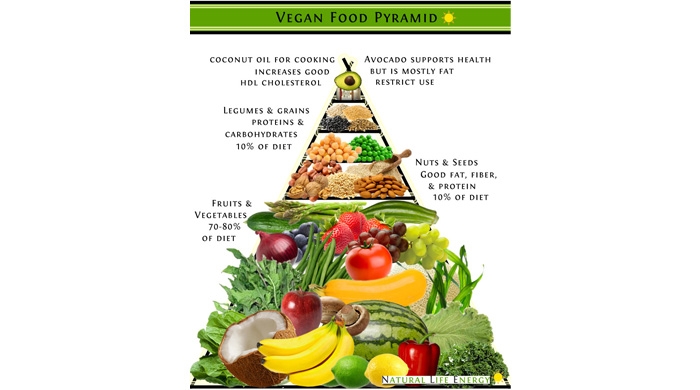Tell someone that you are vegan and often they will instantly turn into an expert nutritionist: You’re not getting enough protein! You’ll get sick! You need meat to live.
Ignoring the armchair experts, there is a lot of scientifically valid research out there about vegan nutrition and health and it’s generally good news. Vegans tend to live longer than meat-eaters and vegetarians but there are still some things to look out for. The Vegan Society collates the evidence and keeps their vegan nutrition guide up to date.
It’s a good idea to read it through. It’s much more balanced than the information you will find from pseudo-scientific health gurus who are trying to sell their latest faddy diet product or make people panic about what they eat. Anyone who takes an interest in what they eat is likely to improve their health. It goes without saying that avoiding junk food and eating a varied diet with lots of fresh fruit and vegetables will be good for you, whether you are vegan or a meat-eater.
One thing to look out for is Vitamin B12. This is produced by bacteria in animals guts but, because our food production methods are cleaner these days, there’s less of it in our diets, particularly vegan diets. Animals bred for food are given B12 supplements to ensure there is enough in their meat but even meat-eaters should be taking B12 supplements as they get older. Luckily, there are lots of foods fortified with B12 and supplement tablets and cheap and readily obtainable. For example, you can get Engevita yeast flakes fortified with vitamin B12.
Most meat-based diets contain a large excess of protein and this can lead to obesity, heart disease and other serious conditions. Plant food such as pulses (beans, lentils, peas) and grains (wheat, rice etc) contain the amino-acids that make up protein. Some plant foods such as soya have all the necessary amino-acids so, for example, tofu is a good food for protein. Other plant foods have only a selection of amino-acids and so you need to combine them to get the full range. Generally, if you are eating some pulses and some grains each day then you will be meeting all your protein needs. This is really easy to do: beans on toast is a good example of combining pulses and grains.
Although at first it requires a little thought to ensure you are getting all the nutrients you need, it becomes second nature after a while. Becoming vegan is a period of transition and once you are there, you don’t need to think about it very often.
If you want an easy way to ensure you are getting enough B12 and the various trace elements you need, then this can be done with a daily dietary supplement. Many supplements are not suitable for vegans but Quest make a vegan multivitamin. Also the Vegan Society produce VEG1 tablets which are designed to complement a vegan diet. There are also supplements for individual nutrients such as Vitamin B12 but, again, check carefully that they are suitable for vegans. Although supplements aren’t needed by everyone, they can offer peace of mind that you aren’t missing out on the nutrients that are harder to obtain.
More articles
- Gifts
- Vegan badges, cards, & stickers
- Refills available
- Food for travel, camping and festivals
- Veganism and Nutrition
- How to cook with tofu
- Vegan Alternatives
- Vegan Cheese
- How to use Nutritional Yeast Flakes (nooch / Engevita)


